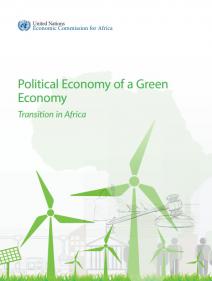The United Nations Conference on Sustainable Development (Rio+20) identified the green economy as one of several approaches to sustainable development, and in particular, that the green economy should “contribute to eradicating poverty, as well as sustained economic growth, enhancing social inclusion, improving human welfare, and creating opportunities for employment and decent work for all, while maintaining the healthy functioning of the Earth’s ecosystem”. Political economy or governance is a fourth and critical dimension of sustainable development in Africa. African countries have committed themselves to pursuing a sustainable transformation and development path, with the Agenda 2063 as the framework articulating their development aspirations. Agenda 2063 reflects a desire for shared prosperity and well-being, entrenched in the pan-Africanism spirit of the 1960s which focused on liberation and political and economic independence (ECA, 2017). The present study undertakes a political economy analysis of a green economy transition in Africa with the aim of interrogating the scope of a green economy transition, the critical institutions, policies and instruments; political structure and systems that should also be transformed in the process to achieve sustainability. The present report has highlighted the political economy issues that emerge across the green economy landscape in the region. Stakeholder interest varies, and the pitfalls of negotiated and un-negotiated reforms are covered in great detail because the interests that pull the greatest weight usually undermine the prospects for a sustainable transition due to their tendency to perpetuate inequality and exclusion.
Share this:
Release Date:
15 May, 2020
© United Nations Economic Commission for Africa

